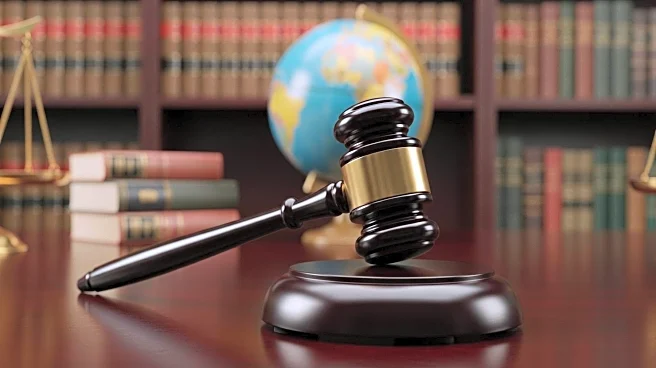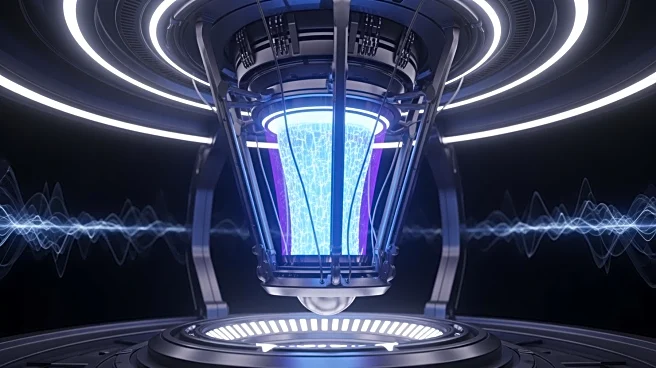What is the story about?
What's Happening?
A federal judge has issued a preliminary injunction preventing President Trump from firing Federal Reserve Governor Lisa Cook. U.S. District Judge Jia Cobb ruled that Cook can continue her duties as a governor while her lawsuit against the dismissal moves through the courts. The decision comes ahead of the Federal Reserve's next meeting, scheduled for September 16. The Trump administration's request to delay the ruling for an appeal was denied, as the judge emphasized the public interest in maintaining Cook's position. The court found that Trump's attempt to remove Cook likely violated the Federal Reserve Act, which restricts the grounds for dismissing a governor to their conduct in office. The judge also noted that Cook's removal would cause irreparable harm, highlighting the importance of the Federal Reserve's independence.
Why It's Important?
This ruling underscores the legal boundaries of presidential authority over the Federal Reserve, a body designed to operate independently from political pressures. The decision is significant for maintaining the stability and independence of the U.S. banking system, which is crucial for economic stability. The case highlights the tension between political influence and institutional independence, with potential implications for how future administrations interact with the Federal Reserve. Cook's continued presence on the board ensures that the Federal Reserve can operate without undue political interference, which is vital for its role in managing monetary policy and promoting economic stability.
What's Next?
As the lawsuit progresses, the Federal Reserve will continue its operations with Cook as a governor, potentially influencing upcoming policy decisions. The Trump administration may seek further legal avenues to challenge the ruling, but the immediate focus will be on the Federal Reserve's meeting and its policy outcomes. Stakeholders, including financial markets and political leaders, will be closely monitoring the situation for any shifts in monetary policy or governance that could arise from this legal battle.
Beyond the Headlines
The case raises broader questions about the balance of power between the executive branch and independent federal agencies. It may set a precedent for how future presidents interact with the Federal Reserve and other independent bodies. The legal arguments presented could influence interpretations of the Federal Reserve Act and the scope of presidential authority, potentially affecting governance structures in the long term.















